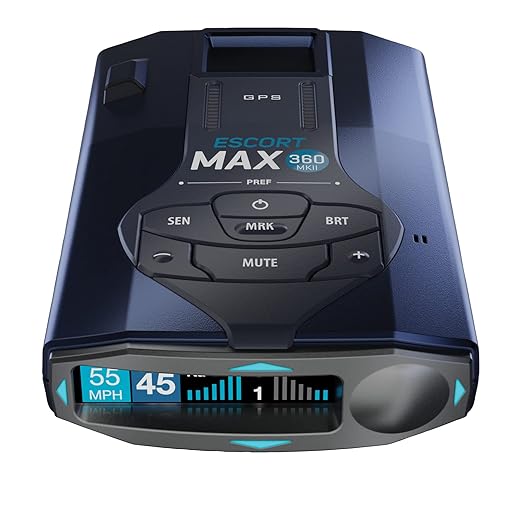









Understanding the Decreasing Detection Range of Radar Detectors Over Time
Radar detectors are essential tools for many drivers, serving as a safeguard against speeding tickets and enhancing overall road safety. However, have you ever wondered why your radar detector seems less effective over time? In this article, we’ll delve into the phenomenon of decreasing detection range, exploring the reasons behind it while offering insights on how to maintain optimal performance.
The Basics of Radar Detection
Before we dive into the intricacies of detection range, let’s clarify how radar detectors work. At their core, these devices use radio frequency signals to detect the presence of police radar guns. When a radar gun emits a signal, it bounces off vehicles, returning to the source. Your radar detector picks up this reflected signal, alerting you to potential speed traps ahead.
But here’s the catch: not all radar detectors are created equal, and their performance can deteriorate for various reasons. So, what factors contribute to the decreasing efficacy of radar detectors over time?
1. Technological Advancements
Imagine the world of technology as a race. Every year, manufacturers release new and improved radar guns with enhanced capabilities. These state-of-the-art devices often operate on different frequencies or employ more sophisticated modulation techniques, making them harder for older radar detectors to detect. As technology advances, your trusty radar detector might start to lag behind, much like an outdated smartphone struggling to run the latest apps.
2. Obsolete Detection Methods
Did you know that many radar detectors rely on older detection methods? Some use superheterodyne technology, while others might be based on analog circuitry. As police departments upgrade their equipment, your detector may find it challenging to keep pace. Think of it like trying to tune a vintage radio to a modern station; the signals just don’t match up as seamlessly as they used to.
3. Environmental Factors
Have you ever noticed that your radar detector performs differently in various locations? Environmental factors play a significant role in detection range. Urban areas with tall buildings can obstruct signals, while dense forests can absorb them. Weather conditions, such as rain or fog, can also affect signal clarity. Therefore, your radar detector might shine in open highways but struggle in the city’s concrete jungle.
4. Antenna Wear and Tear
Just like any other electronic device, radar detectors can experience physical wear and tear. The antenna, responsible for receiving signals, is particularly vulnerable. Over time, exposure to heat, sunlight, and vibrations can degrade the antenna’s performance. Regular maintenance and care can help prolong your device’s lifespan, but eventual deterioration is inevitable.
5. Firmware Updates
In the digital age, keeping your radar detector’s firmware up to date is essential. Manufacturers often release updates to enhance performance and compatibility with newer radar technologies. If you neglect these updates, your device may gradually lose its ability to detect newer radar signals effectively. Much like a computer that slows down without software updates, your radar detector can also fall behind.
How to Mitigate Decreasing Detection Range
While the decreasing detection range of radar detectors is a natural phenomenon, there are steps you can take to mitigate its effects:
– **Invest in Quality**: Opt for high-quality radar detectors from reputable brands that consistently update their technology.
– **Stay Updated**: Regularly check for firmware updates from the manufacturer. This simple step can significantly enhance your detector’s longevity.
– **Maintain Your Device**: Keep your radar detector clean and free from dust or debris. Make sure the antenna is functioning correctly and replace it if necessary.
– **Consider Upgrading**: If your radar detector is several years old, it might be time to invest in a newer model. The latest devices are designed to detect more modern radar technologies, ensuring enhanced performance.
Conclusion
In conclusion, while radar detectors are invaluable tools for drivers, their effectiveness can wane over time due to technological advancements, environmental factors, and wear and tear. Understanding this decreasing detection range is crucial for maintaining optimal performance. By investing in quality devices, staying updated, and practicing regular maintenance, you can prolong the life of your radar detector and continue to enjoy safer driving experiences.
FAQs
1. How can I tell if my radar detector is outdated?
If your radar detector is several years old and struggles to detect newer radar technologies or frequently misses alerts, it may be time to consider an upgrade.
2. Are there specific brands known for their longevity?
Yes, brands like Valentine One, Escort, and Uniden are known for producing high-quality radar detectors that often come with firmware update capabilities and excellent performance.
3. Can weather conditions affect my radar detector’s performance?
Absolutely. Weather conditions such as rain, fog, or heavy snow can interfere with signal clarity, impacting your radar detector’s effectiveness.
